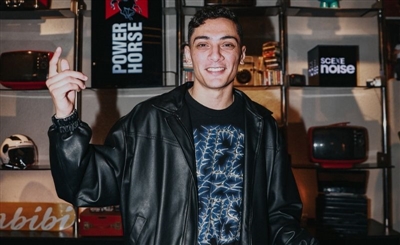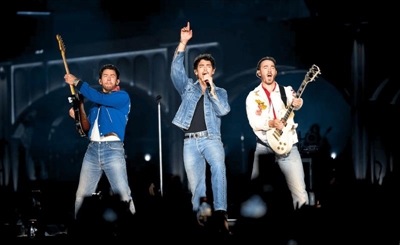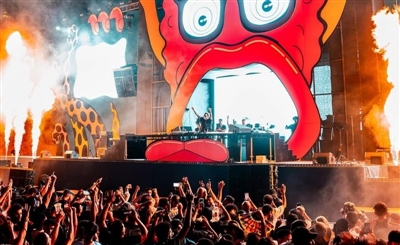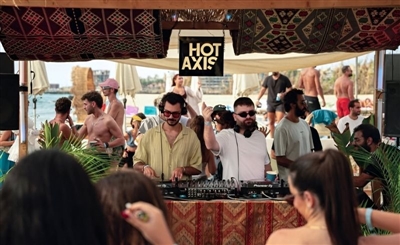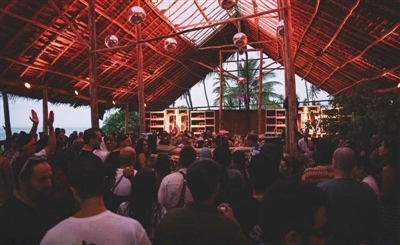Copied
Alsarah on Being Weird, Sudani, and Finding the "Good Spot"
The singer-songwriter opens up about what it is to be Sudanese, haters, the circularness of music, and building a "home" one album at a time.
Sep 02, 2018
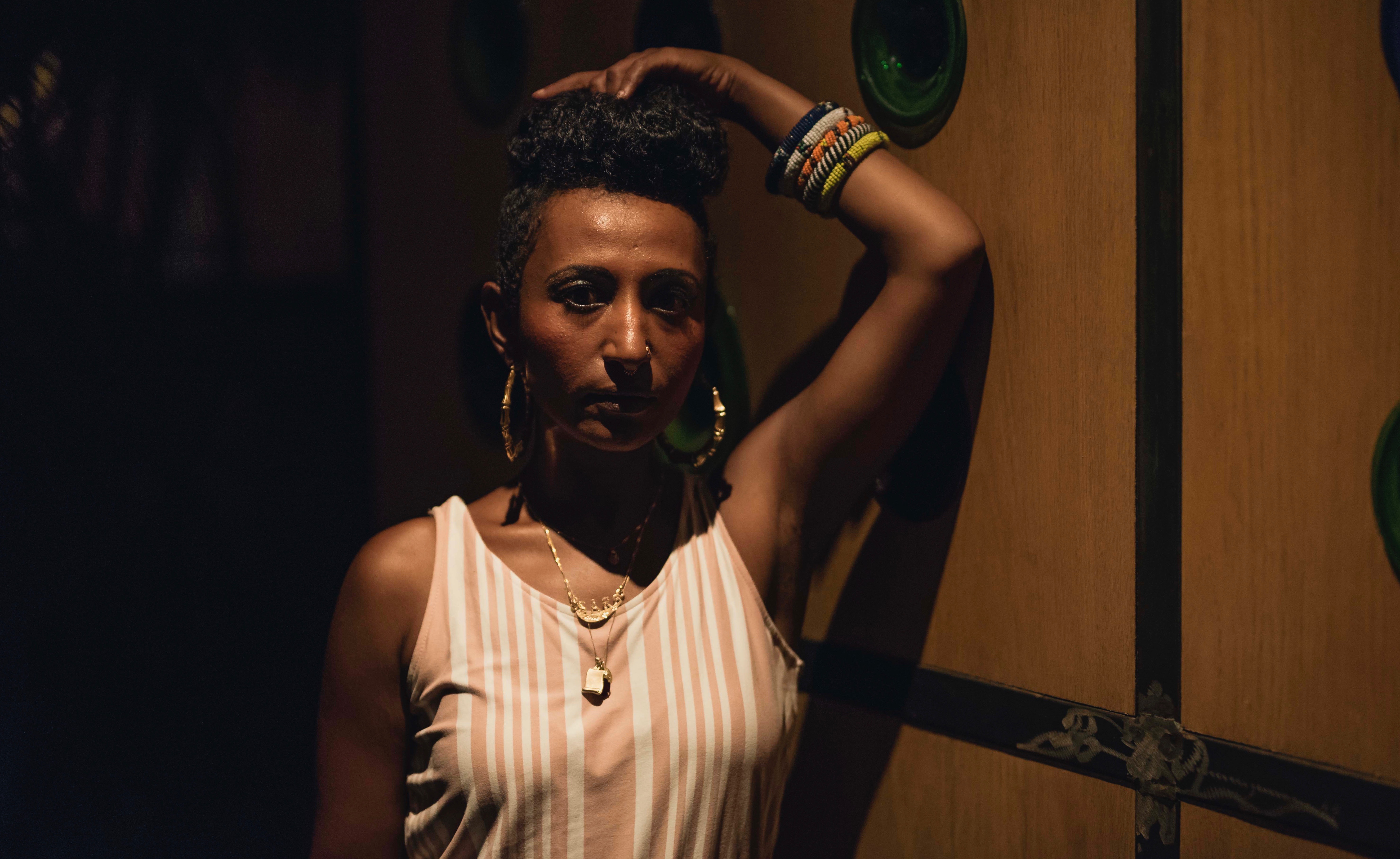
My friendship with Alsarah began during a grueling four-month long tour through the United States with The Nile Project - she as singer, me as tour manager. We bonded during group therapy sessions, and by that, I mean a lot of drinks - mezcal, when possible - in bars and hotel rooms around the country, which is how I came to learn her story.
Born in Khartoum to political activists, which eventually led to her family's relocation to Yemen, they spent some years there before moving on to the middle of the U.S.A. - Amherst, Massachusetts. From the age of 12, as far from Khartoum as you could be, this is where Alsarah would grow up - but through her family, Sudan lived on in her home. Her youthful aptitude and interest in music from all of Earth's corners would lead her parents, liberal and artistic in their own right, to place her in a performing arts school: she flourished. Later, she would attend Wesleyan University, studying performance and ethnomusicology.
Despite this being a successful experience, Alsarah realized that the world of academia wasn't for her - knowing her, it makes perfect sense. She sat down and had a serious talk with herself, and decided to take the less secure, but more seductive, liberating path - to be a performer.
In 2004, she landed in Brooklyn, NY, which would become her home, molding her personality and future with a flair that only Brooklyn possesses. Here she started the Nubatones, and since then, her career has only escalated. Unfortunately, her original oud player, Haig Manoukian, passed away in 2014 - his student, Brandon Terzic took his place. With a signature style she has deemed "East African Retro Pop," she signed with Nickodemus' Wonderwheel Recordings, on which she has released an EP, Soukoura (2014), two full albums, Silt (2014) and Manara (2016), and their respective remix albums, to great and growing reception. Her sassy, sultry and glamorous stage presence have won her a devout following, that only continues to grow. In the past couple of years, she and the Nubatones have been touring virtually non-stop, from the U.S. to Mogadishu, and everywhere in between, which would mean we continue our therapy sessions abroad.
While living in Spain a few years ago, I hopped on the ferry over to Morocco to meet her and the Nubatones, where they were holed up writing sophomore album Manara in a rented beach home tucked into the old blue, green and white city of Asilah. At this point, the band had a new member: Alsarah's younger sister, Nahid, who had finally caved in to Alsarah's years of pestering her to quit her job in education and join the group. Seeing them on stage together for the first time a few days later at the Visa For Music festival in Rabat, it only made sense.
On her most recent visit to Egypt, a country that has acted as another home for her over the years, we reunited again. Not much had changed; as normal, she was halfway between a scream and a laugh, cursing and blessing the world with equal vigor. She treads consciously and with style, with a skeptical but loving eye to the world, and has nurtured the inherent spiritual dimension of herself in a way most genuine. On stage as in daily life, she is at once glamorous and rooted, assertive, cynical, intelligent and direct - but not arrogant. Her devotion and connection to her audience is evident; here she engaged often with them, lamenting the increasing racism in Cairo, and appeasing to people to cherish art and culture.
We sat down before her sound check at Darb1718, to talk about her relationship with Sudan, the myth of tradition, and of course, her music.
"There are things I only say in interviews, that I never say to people in real life, because that's a fucking weird ass way to walk around the world."
<iframe width="560" height="315" src="https://www.youtube.com/embed/Pk-fhXPbCt0" frameborder="0" allow="autoplay; encrypted-media" allowfullscreen></iframe>
You have a lot of criticisms, many from Sudanese. What is it about you that challenges the Sudanese notion of correctness, and what is it about you that the Sudanese appreciate as theirs, or that fits in?
I don't know what's challenging for them about it. I seem fluent in the culture, which I am, and fluent in the language, which I am, and fluent in the music, which I am, but at the same time I seem to completely be unaware of all the social norms and rules and expectations. I'm not unaware of them, I'm just deliberately ignoring them. The deliberate ignoring of it is challenging for people, just in general. They specifically criticize me though because subconsciously they know I'm Sudanese. This is why I think the criticism comes in like that, because whether they know it or not, by criticizing me, they're actually claiming me. Even though in the criticism they're like "you're not like this enough," and I'm like "but you recognize Sudan in me enough to be invested to come out here and even write that."
I've always challenged people's ideas of "Sudanese." My whole life I've been "other." I don't know if I would have ended up being any less weird if I had even stayed in Khartoum, I just would have been better at hiding it, and since my parents both like me anyways, I don't really care. I don't have to hide it from them, and that's the biggest confidence booster. If your parents aren't challenging you already about who you are, you can stand up to other people about it. I feel really lucky about that.
I grew up in different diasporas, and I am a child that doesn't look like Khartoum, or any one of those paces - I look like a bunch of different places. I do look different, I do sound different, I am different! But difference doesn't make you less Sudani. For me I came to peace with that working on the documentary The Beats of the Antonov, because all of a sudden, I was in a place with people who have never been anywhere outside of Sudan, and this was the first time they've ever left their home village, and they're where they are because they're being told they're not Sudanese enough. I realized that if they're not even Sudanese enough, then we're all having an issue about what it means to be Sudanese. We as Sudanese keep pointing out what isn't Sudanese, but we don't really know what is Sudanese. I think that's a big part of the challenge, and I'm happy I could be there to stir that pot.
Do you receive a lot of feedback from Sudanese who also might feel alienated from Sudanese society?
Yea I do, they show up to the shows. That's the thing - haters like to leave their opinions loudly on Facebook, and lovers and supporters show up to the show. Which is why, at the end of the day, I'm like Sudani haters don't really matter. You never supported me anyways, you don't buy my tickets, so me channeling myself to you is irrelevant.
Plus if you don't have haters you're not…
You're not really doing anything. But also, honestly for me the way we approach art and artists as Sudanese people is something we need to talk about, and something we need to challenge each other on, because so many of our greatest musicians, our greatest musicians, die broke and alone, and they release album after album and never make any money from those albums, because you guys don't buy albums, you just download it and put it up on YouTube, and you don't really show up to the shows because you can't find a babysitter or whatever. There's a lot of people who talk a lot of smack, but they're not showing up so it doesn't matter. To me, if you want your opinion to count, you need to count…and that means you need to show up, buy a ticket. I want to hear people's opinions.
I'm going to make the art that I make, but it doesn't mean that I don't want to hear you. I want to hear you, but making art isn't about only you as the audience member, it's about the two of us having a relationship, and sometimes I wonder if Sudanese audiences remember that, because it's been so long since we had our own private scene bubbling, although we're coming up now!
I was going to say, it seems like there's a lot of art coming from Sudan and the diaspora.
There's a lot of stuff happening now. I think it's just a new fresh generation.
Yea, Sufjan from Khartoum recently remixed you on your Manara Remixed album…
Yea, and there's Oddisee, Sinkane…inside Sudan there's a whole new plethora of musicians. You've got those guys that do Aswat AlMadina, and there has always, always been traditional music going on - wedding music, party music…it's always happening, has never stopped. It just doesn't get counted in the pop paradigm.
There are a lot of re-issue labels, a re-issue culture happening, and a lot of these guys are focusing on Sudan right now: Ostinato, Habibi Funk…how do you feel about this?
It's the new exotic land. *laughs*
Here's the thing: there's a fine line between appropriation and appreciation, and that line is knowledge. For me, there are some people who are coming in, and they feel like they're sound colonizers. They're looking for raw resources, and they want to take it, and when they take it it's theirs. They don't realize that it's never been theirs, and will never be theirs; it belongs to other people, and you're taking someone else's stuff and putting it out, which has a positive side, because then people like me in the diaspora have access to it, and even the rest of us inside Sudan have access to new, remastered, beautiful quality recordings of our own musicians.
But to pretend that the republishing world isn't incredibly neocolonial would be, to be blind. It is, but I also feel that just like there is a new wave of Sudanese artists coming up, there's also a new wave inside the republishing world of people who are trying to be conscious or knowledgeable or trying to do it for what republishing really is. For me republishing is an arm of anthropology, an arm of documenting. You're here to document and preserve stuff, actually, if you're going to work in the republishing world. That's how I view it, so to me it can have an extremely noble and important role, if you do it properly. Or you can fuck shit up and act just as colonial as your parents did in thinking that these new exotic sounds are yours because you "discovered" them.
Back to appropriation, there are a lot of artists remixing, starting bands in foreign styles, and as you said, the line between this being toxic appropriation or something positive is having knowledge, correct?
Exactly, and what it really resembles. And if you're inspired by it, that's amazing and wonderful, but understand it. Don't just skim it on the surface, and then act like what you're doing is of that culture. You can say "I'm sampling sounds from here" and that's totally fine, but again…it's how you go about it. Knowledge, knowledge, knowledge - and a huge part of knowledge involves having enough respect to be silent and listen.
I've run into that a lot.
I bet you do. It's interesting, the performance of culture in music and in the world in general is a fascinating thing that we never want to get into the nitty gritty of, and we don't ever want to challenge ourselves or ask questions, like, why are you interested in this culture? Why are you forcing people to perform it for you in a way that you want to see it, and not necessarily in the way that they want to give it to you? What does that mean? What does that say about you? Most people don't want to really get into that with themselves though, because it goes to not so pretty places, but you know what? The not-so-pretty places, those are the places that are the most important to visit.
Especially in these dark days.
Oh my god, especially these days. The worse shit gets, the more your ugly side will come out to take over. All the things that you thought you weren't going to do, you're probably going to do it, as soon as you start feeling like you're cornered, you're going to lash out, and the way you're going to lash out says a lot about who you are and what you were holding inside you. To me, spaces of pain are really important to navigate…intimately, and in a safe way. For me, that way has always been music…it's a place I feel very safe, and I want to navigate my places of pain, and my places of pain have joy in them. They have EVERYTHING in them…it's your insides, your world.
All my favorite forms of music come from these places of pain, but that don't dwell in self-pity.
Most music in the world comes from a need to express an extreme emotion that you don't know how to articulate, because words are beautiful and great, but they're inherently reductionist. With sound, you've got so much more space and that's why I love music. It's not just words, it's not just melodies, it's a combination of all those things together, guiding each other.
It's metaphysical…
Yea, it is, and my writing style uses very few words and it's on purpose. I like words that are about abstracting how I feel as much as I humanly can, because for me, making music and making art is about the two of us - me, and you. And once I make a song, I want there to be enough room for you to have your experience inside of it, your very own experience. It has nothing to do with me… you can take these songs with you, and they can become a part of you. Then, it doesn't matter why they came out of me almost. It shouldn't matter to you, as long as you can connect to it, or you find yourself in that space. That's what I want to do with the songs that I make, I want to make sure that there's room for them to grow with someone else. At the end of the day, they leave you, they leave you…as soon as you make them, they leave you. You sing them, and you revisit them when you're singing them, but in that creative process it's…it's that world.
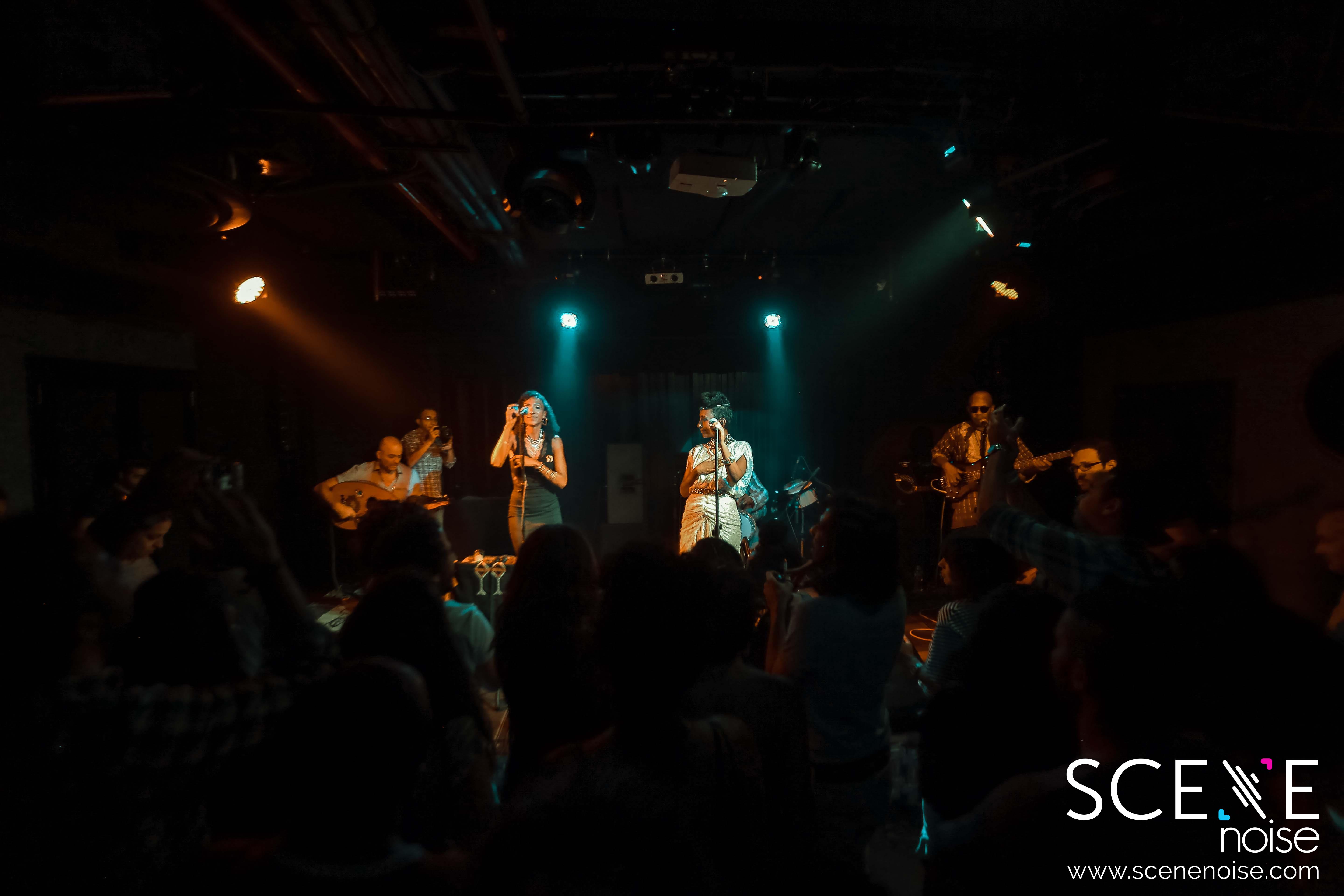
I like when you have talked in the past about this sort of uselessness of separating the traditional from the modern, as if there was a distinctive point when tradition ended. Can you expand a bit on that continuity of adding to "tradition", to a "cultural library"?
I think music is a circle, with a bunch of little circles inside that circle. It's not a straight line, things are not that far away from each other, things are always floating around each other, all the different worlds of music. That's why there are waves of similarities and sounds that go throughout decades, across the world. To me, traditional music is just old pop *laughs*. It's just old pop. It has different kinds of instrumentations, and modern music today, in 200 years, will be considered part of the traditional canon. I guarantee you, in 200 years, Rihanna will be "traditional." I promise, it will be "traditional pop" from the 2000s. The only thing that makes something traditional is the passing of time, it's not a dead thing. Traditions only die when people start to hold them still. I don't even think about it, it's just what every musician who writes their own music does, because you don't make music in a vacuum, and you don't come out of the vacuum, you're not coming out of a black hole, you come out of music you heard, and all of that music that you heard and you grew up on is part of your soundscape, and even if you're making something that doesn't sound like any of that, whether you like it or not, all of those past sounds are parts of your tradition, because we are living traditions as humans - you are a living tradition. You start your family, you can start them in a cult and make your own new way of life, you can start them as a mainstream thing, you can move to another country and make sure your kids are going to grow up purely of that other place, and have nothing to do with this place…we forget how much agency we have in the way we guide traditions. To me, traditions are my tools…what I do with it after that is up to me, and I hope that's always changing.
You're an artist who is rooted in old music...Sudanese, East African music, and whatever else you explore, which is really important.
It's very important to me, that's a part of who I am musically. I was always interested in a retro-pop phase from a certain region of the world, and I think that my sound reflects all of that. To me, it has notes of Indian, pop, Bollywood from the '70s, and notes of old Bi Kidude sounds, and notes of old Abdel Gader songs. All those notes are there because I like a certain thing…there is a commonality to these different genres to me; I see it, I feel it, it makes sense in my mind. So, I don't see a dichotomy, I don't see confusion. Most people are multi-dimensional. We're like prisms, we really are, and I think that's why a lot of us walk around feeling fragmented. We look at one side, but depending on how you let the light hit you, you can be all kinds of other things. That's why when you get cornered, you find out some new shit about yourself.
I wonder what Mawuena (bass/trumpet) found out when he got cornered and bitten by that dog just now…
That he doesn't like dogs, because he was like "I want to kill that dog now." I told him, "that's how you know you don't like dogs", because someone who likes dogs would be like "oh doggy! Doggy was afraid."
Do you like dogs?
No, they smell bad. I don't like anything that stinks.
Cats?
If they don't smell bad, totally into them. But cats understand, I also like dogs that don't smell bad and aren't needy. I just don't like needy shit…they're just like needy people but worse because you can't even convince them to go away.
I hung out with you guys in Morocco when you were writing the music for Manara, but I didn't really see the process. So, what were the main differences between the process of Manara, your sophomore album, and Silt.
Well, for one, there was a process for Manara, and Silt just felt like we willed it into being. I remember saving money to record our first songs so I could book us our first gig. That was "Rennat", the first song we ever recorded. Then, it took a year of me putting away all my money. I never paid myself for any gigs, and taking 10% off the top of everything, and putting it in this stash. Then, we recorded three more songs so that we had four, and then we had an EP, which I continued to try and book better gigs with, and then Haig got really sick, and I wasn't sure how long we'd have him for. We just rushed to finish that album, and it took two years to release it, because I had no money, and to mix it took another year. It was just me squirreling away cash. Then I found a label, and after that we toured for a year, and then I found management. After that, I decided that for Manara, I was like "no, we need to carve the time to work on this. We're going to dedicate a time, and set up organized releasing." We met deadlines, and put together a strategy, and the album I thought of cohesively as an album. Silt was just a collection of songs to me.
True, Manara, is way more of an album in that sense that it's so cohesive and feels like one piece.
It's a journey, a full album that's meant to be listened to from beginning to end, and Silt was a collection of singles, and in that I wanted to showcase the traditions I come from, and what I wanted to do with them. You had songs like "Rennat", "Fugu", "Soukura" all original tracks, but I wanted to juxtapose them with what traditional was like and how I wanted to feel that traditional, so I could teach people, because I didn't think I was going to release that album anywhere outside of New York City, so I wanted to teach them about this because they don't know where the fuck Sudan is. I need to explain what I mean by "the songs of return" or about the exchange of cultures between Sudan and Egypt via Nubia. They're like "are you Egyptian or Sudanese?" and I tell them I have family in both places. I'm Sudanese, born and raised, but I have family in both and I claim both. In Manara, I wanted to talk about a particular thing, like "I am now on a journey, and I am trying to build a house." One album is one wall, one wall at a time, and then we're going to furnish it on the inside, and that house takes time to build. I'm hoping that it grows and changes with me. The idea is that this house can house all the parts of me, and that should take 30 albums. Otherwise, I'm bored.
How did you choose Asilah for that creative sabbatical?
I love Morocco, first. Second, I wanted somewhere I could afford. I had tried in Cairo, but it's too hectic here, we were so distracted and it was so difficult to be in Cairo for me - too many emotional things happening for me all the time, because I'm too intimately tied to the place; emotionally invested in how fucked up things are. I needed more distance. Being in Morocco is perfect, because it's familiar, but I'm so foreign. It's not me, but it's something I can connect to, because I can feel the history of my people going through there. I feel it in the faces that look back at me, I feel it in the sounds. Also, for me, I need to be next to the sea when I make music. This is why I live in NYC to be honest, I would never live in a landlocked place; I need to be able to go to the sea at any time. To me, Manara is all about that, the journey of the sea. There's a song in there called "Albahr" and the whole idea is the movement, and the manara (lighthouse) is what you're trying to get to, but is it even real? Is the manara even real? Because I don't even know sometimes.
<iframe width="560" height="315" src="https://www.youtube.com/embed/0PX8xca4-5E" frameborder="0" allow="autoplay; encrypted-media" allowfullscreen></iframe>
What does the manara represent and symbolize?
A place of safety. But what is safe? That's the real question. Safety is a state of mind, just like home is a state of mind. You could take that anywhere, so you could lose that at any moment.
Home comes and goes depending on where you are. I have felt, as someone who has lived pretty much nomadically for the past six years, that even "home" can feel like limbo.
It's about feeling settled with something inside you. But I also really like visiting people!
How do you feel about "fusion"?
I think fusion is the root of tradition. It's older than tradition, most traditions are based on that. Most people's ideas of fusion are silly, and the way people practice fusion is silly, just like the way practice "world music" is often silly.
What is "world music"?
It's nothing! It means nothing, that is literally the most empty two words you could put next to each other. World music is anything made in the world.
You sing mostly about love, and tricky political situations. What are your favorite lyrical matters…how have they changed over the years?
I think it really changes with time. Sometimes I go back to old things, sometimes I don't. It should change. As long as you're honest in what you're doing at the end of the day, that should be the only consistency, to be honest, and then your personality becomes the common denominator, and that will show. We put our touch on everything, whether we want to or not.
Was there a moment that you decided to take this step, to commit to music and become a performing artist?
I've always known that music was my savior, but I've also always known that I can do this shit in my bedroom and still get the same joy. The music is the joy, not the business - the business is just business. That's why you can't let someone compromise that shit for you, and that's the ultimate fight, when trying to make a business out of it, is trying to not let people take away the joy of it and turn you into a machine that's there to produce sound. I'm not a machine, I'm a person, I'm an artist and this is a sacred thing we do. This is why people exploit musicians all the time because musicians are enslaved to this, you can't not make sounds. You want to so much, and when you don't it eats away inside of you and turns you into a bitter, ugly person, and that's why I feel musicians sometimes are mad.
Is there a spiritual aspect to this for you?
Isn't there a spiritual aspect to everything?
Yes, but is there any sort of ritual aspect, or ceremony or sacredness that you take into the act of writing and performing music? Are you searching for the feeling of taarab (euphoria) or something like that?
Totally, I'm searching for a feeling of unification with The One. I'm genuinely into that shit. And you've got moments in it when you fall right into that good spot, and it's un-fucking-believable.
Do you have any words for that good spot?
It's too good for words, really, I can't explain it. It's the good spot. You don't get there all the time. When you're off your game internally, you can never really get there.
That's like everything, not just performing. You can say "hello" to someone in the good spot.
And have the most amazing greeting with the person, like "wow, I feel fucking refreshed from that hello."
Is it hard to maintain the good spot touring so much?
Totally! The more I tour, the more I realize that people have the idea that musicians are divas or crazy, but you're never in control. You're so out of the program that you need certain things to be in a certain order when you arrive to a place so you can feel like you're settling, because you have four hours to settle, sound check, and get on stage, and you've come from another country.
Then there are people like me trying to interview you.
*Laughs*
Work!
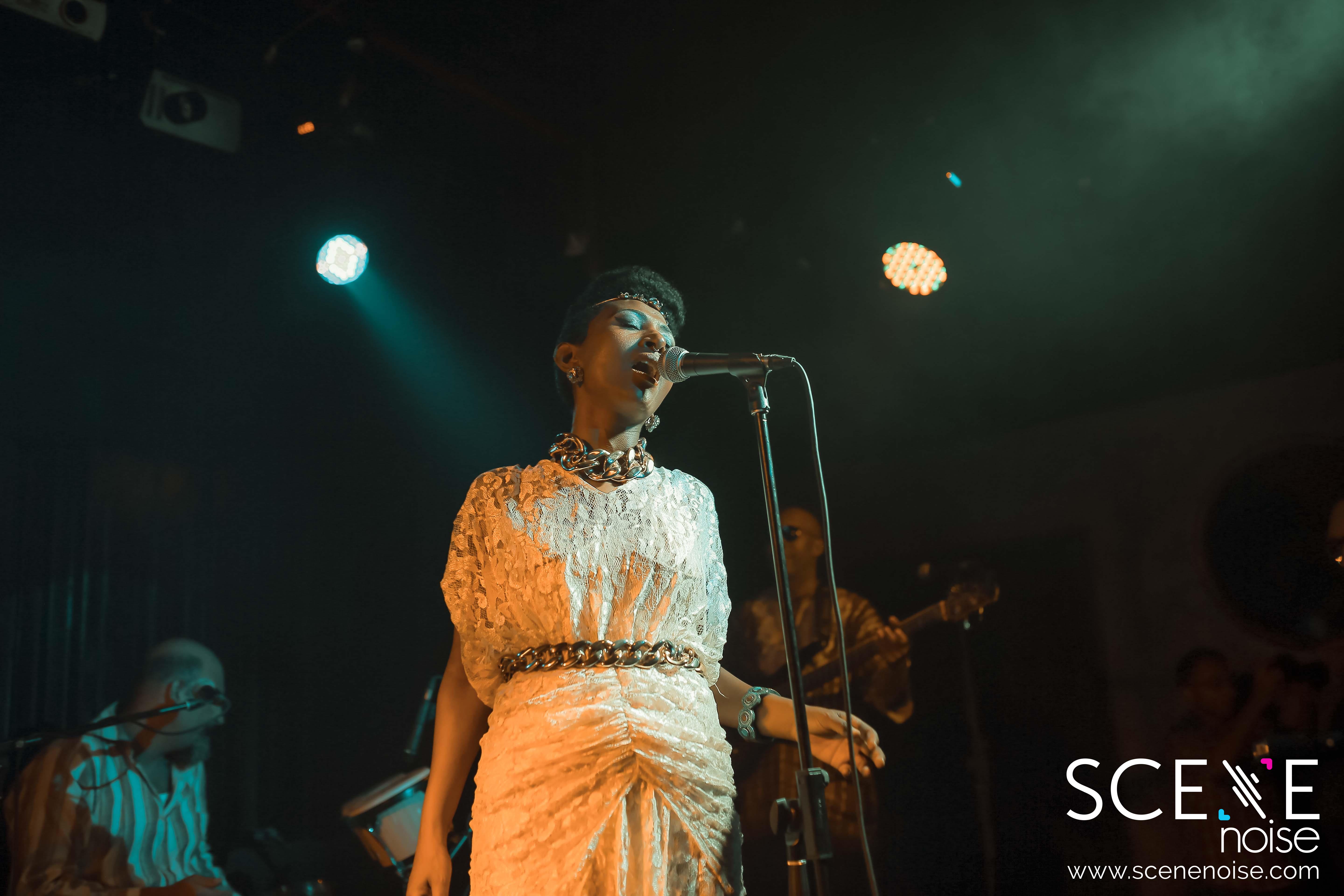
You are touring like crazy. Do you like touring?
Love/hate. I love meeting people, but I've also always been a traveler for fun, so it's not my ideal way of meeting people. I like to go somewhere and hang, hang for a bit. It's so fast, but the more I tour, the more we're also coming back to places, so I'm beginning to see some of the faces again and again, and establish communities in different places, but there is always the few years where it's a little awkward, because you can't feel like you're connected to your friends at home anymore because you're not all the time, and you're not connected to anyone outside of your immediate team.
How is your 'team balance'?
You know, we're a good team! Everybody is extremely different from each other, and none of us can do the same things that the other people can do, which I think is the key to making a good team. It's a perfect weird puzzle, where you wouldn't expect us to all hang - we hang hard. As long as everyone has the same basic ideas about loyalty, intimacy, privacy, those kinds of things…the rest will work out. You have to know yourself, like "I know I'm grumpy today because I didn't sleep enough last night, so I'm going to go sleep in a corner far from the rest of the group with my headphones." Know yourself - touring really forces you to come to grips with who you are, and if you don't want to, that's when it just goes bad, real bad. To me, the last year I had to be like "you need to focus on yourself, because you're acting crazy." I start to act crazy! Then I realized I need to make sure I am taking care of myself, giving myself amounts of silence I need, things like that that you never notice before you're on tour…I need silence, oh my god!
Or I can eat whenever I want in my kitchen, however I want, whatever I want…then being like ok now I know I can't so I really need to think and look around me and stop expecting places that I go to to have things that I like that I have at home, and start looking at what they have and they're good at. So what do you do that's good?? Let's have some of your stuff! Instead of me, expecting you, to make me a really good thing that I want…I want a burrito but I know you can't make it! It's a process.
Plans? New music?
Yea, we're working on our third album. We've already had our first creative sabbatical, and we're going to have the second one in September. We had the first one in Beirut in May. We went to play Beirut Pride, and decided to just do five days of learning. What I leared from Manara is that I rushed too much, and I need more time to let the songs cook. So, that's what I'm trying to take from this: take several creative sabbaticals, not just one. Try to perform the songs a bunch before we go to the studio, instead of finalizing arrangements in the studio. New lessons with every album. I think albums are like…I don't have any kids, but I'm going to go ahead and say that albums are like kids. Each one has their own personality and has to be raised their own way. Individuality.
The Nubatones are Rami ElAasser on percussion, Mawuena Kodjovi on trumpet, bass and keys, Brandon Terzic on oud, and Nahid, Alsarah's younger sister, on vocals.
- Previous Article Getting Abyusif
- Next Article 23 Must-Watch Middle Eastern Music Documentaries
Trending This Month
-
Jan 29, 2026



